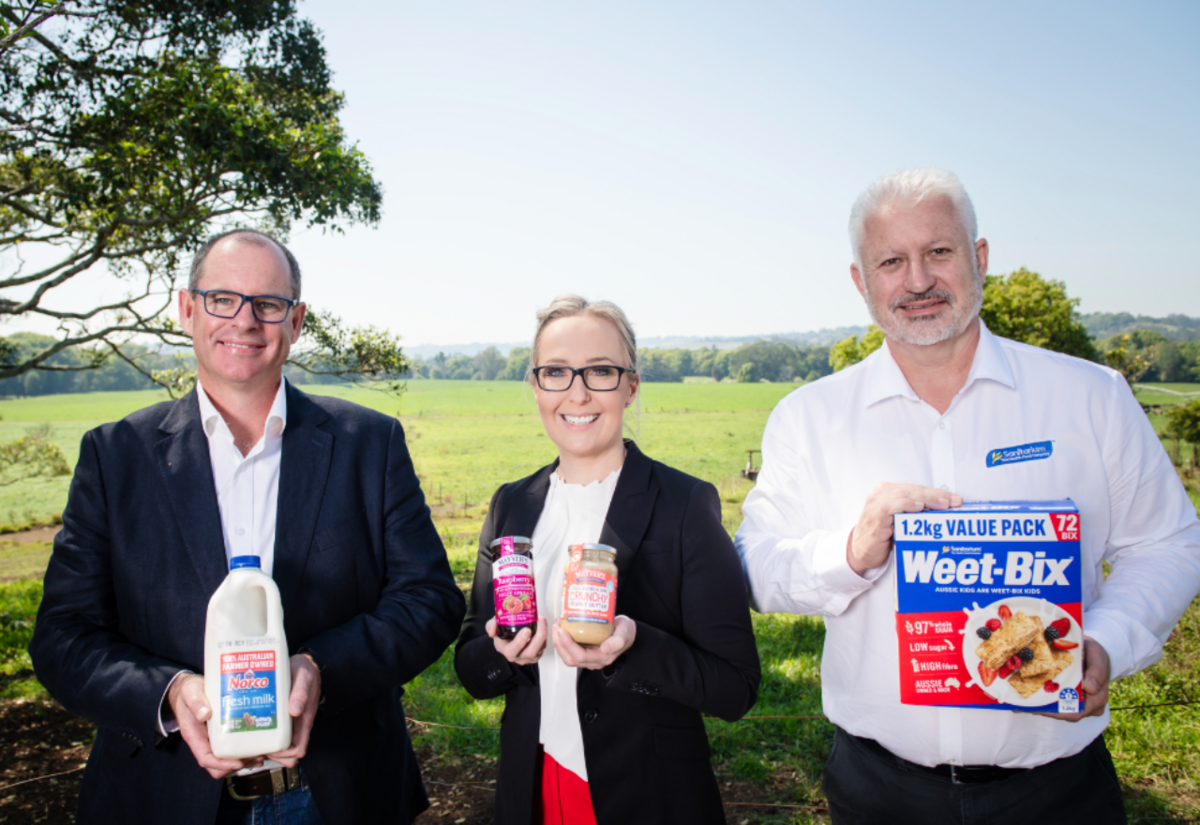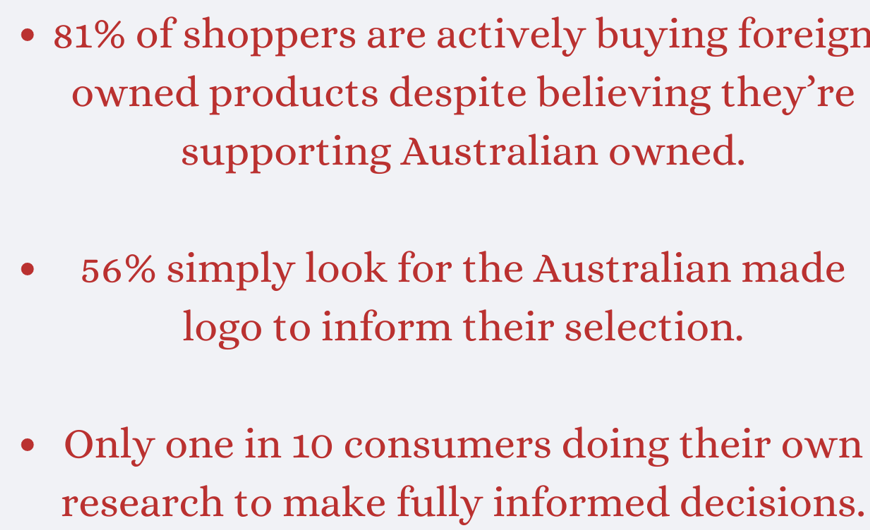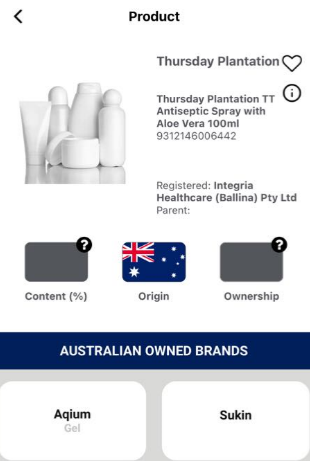Buying locally made Aussie products is not clear anymore
Lara Leahy
27 September 2024, 9:00 PM
 Michael Hampson (Norco CEO), Bethaney George (Mayvers Foods CEO) and Todd Saunders (Sanitarium Executive General Manager) with some of their Australian Made and Owned products
Michael Hampson (Norco CEO), Bethaney George (Mayvers Foods CEO) and Todd Saunders (Sanitarium Executive General Manager) with some of their Australian Made and Owned products The “Australian Made” logo that many of us trust means we are supporting local Aussie businesses. However, it does not necessarily mean it is so. Australian Made doesn't mean Australian-owned, or made from Australian products.
A group of iconic Australian brands, led by Norco, are making big changes to raise awareness of where people are distributing their money - making the choice to keep it in Australia much clearer.
Research by Norco, our local award-winning 100% farmer-owned dairy co-operative, has found that the cost of living crisis has made people more selective in their brand choice. Consumers are willing to pay more to keep their hard-earned dollars on our shores.
That equates to an extra $1.64 billion in spending on their monthly grocery shops, and close to a third (30%) of those shoppers have chosen to increase support for Australian products - to keep the business local. But many dollars are not staying here.
Michael Hampson, Norco Chief Executive Officer, comments that while he was pleased by how much Aussie shoppers wanted to support Australian-owned, it was disappointing to see the scale of confusion among shoppers.
“What’s clear from the research is that if we want to protect what’s left of our iconic and authentically Australian brands, there needs to be a greater conversation and further education around the difference between Australian-made and Australian-owned,” he says.

Iconic brands leaving Australia's shores, lead to increased confusion about what really is true blue. The loss of Australian Brands has led to increased support by consumers wanting to buy Australian brands - to keep them here.
Hampson adds: “While anything that drives job creation and economic activity in Australia is a good thing, it’s still important to know that many foreign-owned companies can still use this labelling.
“The big difference with ‘authentically Australian’ brands and products - those that are both Australian made and 100% Australian owned - is that the money remains here in Australia and is not siphoned offshore.
“This means it can then be reinvested back into Australia and regional communities, which in turn creates more jobs, can better support our hardworking farmers, while helping to sustain the industries in which they operate,” he says.
Clearer labelling has been one solution discussed and consumers agree - 73% believe the country of ownership should be clearly labelled on products.
This idea prompted the bosses of major Australian food brands – including Norco, SPC, Sanitarium, Mayvers Foods and Sunshine Sugar, to join forces to explore the concept.

Another local iconic Australian brand, Sunshine Sugar says they are the only Australian-owned, refined sugar manufacturer. Their business model is uniquely Australian.
Chris Connors, Sunshine Sugar's Chief Executive Officer, said, “As somewhat the underdog in Australian sugar manufacturing, Sunshine Sugar is grown, made and owned in New South Wales.
“We aren’t as big as some of our overseas-owned competitors, but we have a strong customer base that highly regards our Australian roots and the consistent, reliable product quality and service we provide.
“Having our operations based in the regional communities of the Northern Rivers, we see the struggle consumers face when trying to support Australian farmers, and the research confirms that this struggle is occurring nation-wide.
“The concept of making clear the country of ownership, along with tools to help inform consumers, seems like a step in the right direction – for Australian-owned businesses and our patriotic and supportive Australian consumer base.”
There is something you can do. Until clearer labelling becomes available, people are encouraged to use the Bring Back Australia App to help make more informed decisions.
I gave it a test on a Thursday Plantation product, and the information was not complete, but it has made me eager to learn about other products I buy regularly. The feature that makes other Australian brands known is really helpful.


